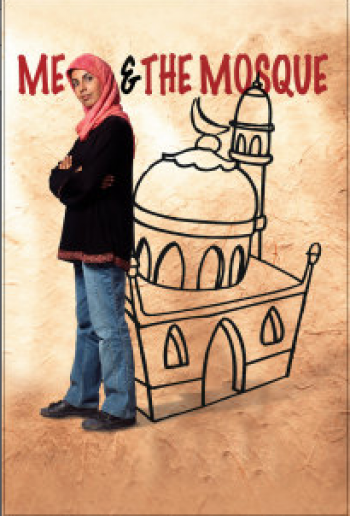Me and the Mosque should be considered a National Film Board classic. Directed and written by Zarqa Nawaz before she went on to create the hugely successful Little Mosque on the Prairie, this full-length documentary film delves into that oh-so-grating little issue of women’s space (or lack thereof) in North American mosques.
Nawaz is an earnest narrator who doesn’t shy away from pulling back the veil on the barriers that have (quite literally) gone up in mosques in recent decades, much to the chagrin of the early community pioneers who remember a time when men and women could freely mingle. These barriers represent both physical and psychological separation that has made second generation Canadian women like Nawaz feel isolated and unwelcome. However, with the humour that would later make Little Mosque immensely popular, Nawaz uses animation and a light-hearted narrative that is accessible and feels, well, Canadian.
This year saw the release of UnMosqued, a film which is now playing in the U.S. and Canada. There are also blogs tracking the dismal state of women’s prayer space. It seems that Nawaz was ahead of her time in 2005 when she produced her documentary. The production was part of the Reel Diversity Competition for emerging filmmakers of colour. The very term “unmosqued” is used by an African-American Muslim woman in the film who pointed out then what many are realizing now — that young people and women are abandoning mosques in huge numbers.
That early realization is heartbreaking for Nawaz because when she was growing up, the mosque was actually a fun and soul-nourishing place to be. She maintains her belief that a house of worship should be the beating heart, the very centre, of a community. It’s her devotion that takes away some of the sting of her critique which, as her brother warns her in the film, will anger many in a community already feeling besieged in the aftermath of 9/11. The film allows us to witness her love of the faith and her desperate cross-continent quest to figure out how traditions described as “dysfunctional” and downright “ignorant” by several scholars and activists she interviews, have crept into North American mosques in a way that has rendered women invisible.
Apologists will attempt to explain that barriers, or “partitions,” according to one sheepish mosque leader, are only there to maintain modesty and prevent unwanted mixing between the sexes. However, the real effect of these partitions, barriers, walls, mirrors, curtains, what-have-you, is to make women feel disenfranchised in a place where they should feel the exact opposite. Nawaz’s film includes interviews with a dream team of respected and renowned scholars who have studied authentic teachings from the early days of Islam and who show, without a doubt, that women should not have to pray behind any kind of barrier and do indeed have the right to full and equal participation.
Nine years on, has the situation changed much? It’s difficult to know, as there haven’t been any formal studies of Canadian mosques and the level of female access and representation on mosque boards. However, just recently, controversy erupted when a prominent Canadian Muslim columnist called on the government to require mosques to provide women opportunities to participate in governance before handing out grants and maintaining charitable status.
And, echoing some of the sexist commentary made in the film during a frank community meeting, a prominent Islamic preacher was the focus of a twitter storm this month for making derogatory and offensive remarks around International Women’s Day.
Perhaps along with the new UnMosqued film, mosque leaders should invite their communities in to discuss and debate this NFB gem. Nawaz is a storyteller with a mission, and style, all her own.
Me and the Mosque can be viewed in French or in English at the National Film Board’s website
We welcome your film review suggestions at [email protected] or on Twitter at @AmiraElghawaby
photo: NFB



